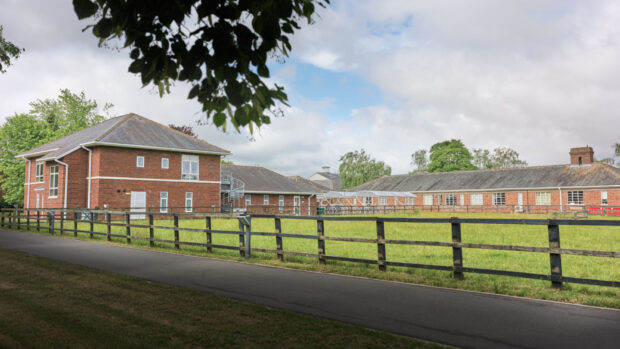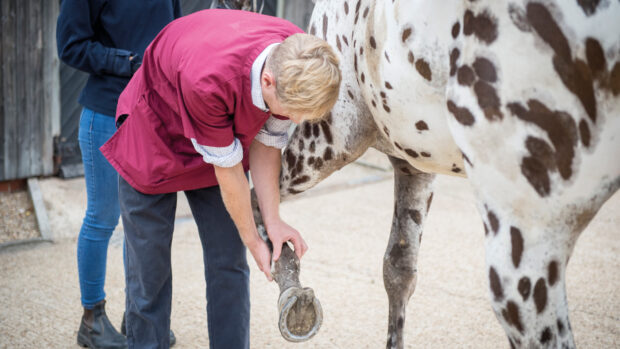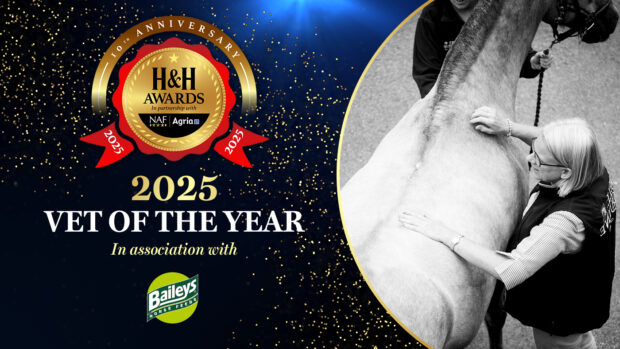A shamed vet jailed for his part in a horse-dealing fraud gave “totally inappropriate” advice to the owner of a mare who died in great pain, it has been ruled.
David Smith was found guilty of a number of charges relating to his time at Lakeview Veterinary Centre, Kent, by the Royal College of Veterinary Surgeons’ (RCVS) disciplinary committee, which also considered his June 2016 conviction of conspiracy to commit fraud.
In findings published today (19 March) the committee found that regarding the clinical charges, Smith had “fallen far short of the standards expected” of a vet and that in this case and that of the fraud, his removal from the RCVS register was the only option.
Smith had denied all the clinical charges. Although he admitted his criminal conviction, he maintained throughout the RCVS disciplinary hearing that he was innocent of the charge of which he had been found guilty in court.
The committee heard Smith was called to seven-year-old Clydesdale Grace in August 2014, by her owner Sharon Hammant (formerly Mancini), a “convincing and reliable witness”.
Mrs Hammant said Smith said Grace had “mild colic” from a distance, and the only examination he undertook was to take her temperature.
She said he asked no questions and injected Grace, then left, telling Mrs Hammant to contact him if she was worried.
Smith told the committee Grace was not in pain, but in writing to the RCVS in 2016, had said she had “acute abdominal pain”.
He said he had carried out a rectal examination without Grace being held or tied, and although in written submissions he stated the mare’s condition was terminal, he told the committee his findings were normal, other than the colour of her mucous membranes, and that he “suspected foul play”. But Mrs Hammant denies she was told of the possibility, and the medicine Smith gave Grace was consistent with colic.
Condition deteriorating
Mrs Hammant called Smith four times over five to six hours, telling him each time Grace’s condition had deteriorated. She told him the mare was “moaning and groaning”, “flinging herself against the stable wall” and, finally, that she was not staying on her feet.
“Mrs Hammant stated that on each of these occasions, Mr Smith’s reaction was to advise her to stop panicking, that the problem would resolve, and that Mrs Hammant should leave Grace alone to sort herself out and that Grace would be fine,” reads the committee’s report.
“There was a fifth call, when Mrs Hammant rang Mr Smith to tell him Grace had collapsed and died.”
Smith did not deny receiving the calls, telling the committee: “What could I do?”
He did not suggest she called another vet, or tell her the horse may have to be visited and put down.
“The committee finds he gave totally inappropriate advice to the owner of a dying horse,” reads the report. “[Expert witness, vet] Mr Hepburn described in graphic detail the pain that Grace would have been in during the last hours of her life.”
Smith was found to have failed to examine Grace adequately and/or undertake sufficient investigation into her presentation and/or history, failed to respond adequately to Ms Mancini’s telephone report/s that Grace had deteriorated and/or failed to improve and failed to make any adequate clinical records for Grace.
Unacceptable suffering
The committee considered Smith’s “whole approach” to Grace “incomprehensible”, that his actions led to her “unacceptable suffering” and he showed her owner a “dismissive and condescending attitude”.
Other charges of which he was found guilty relate to two dogs and two cats.
“The committee considers that, taking the charges individually and in combination, Mr Smith’s conduct has fallen far short of the standard expected of a member of the veterinary profession and his conduct clearly amounts to disgraceful conduct in a professional respect,” read the report.
Continues below…
“In mitigation Mr Smith told the committee it had been his childhood dream to be a veterinary surgeon. It accepted that there was no financial gain and he was not financially motivated. The number of testimonials he provided to the committee demonstrate there are a number of clients who were satisfied with his treatment of their animals. Those testimonials, however, do not specifically refer to the charges this committee was considering.”
The committee added that judges had described Smith as playing a “key role” in the horse-dealing fraud and said a “dishonest vet was essential to the success of the conspiracy” and that his actions put the lives of riders and horses at risk.
“The committee concluded the conviction brings the veterinary profession into disrepute,” the report states. “The facts of the case demonstrated a total abrogation of Mr Smith’s professional responsibilities, which are to protect the health and welfare of animals, maintain public confidence in the profession, and declare and uphold proper standards of conduct and behaviour. The committee considered that Mr Smith’s conviction renders him unfit to practise veterinary surgery.”
For all the latest news analysis, competition reports, interviews, features and much more, don’t miss Horse & Hound magazine, on sale every Thursday.




